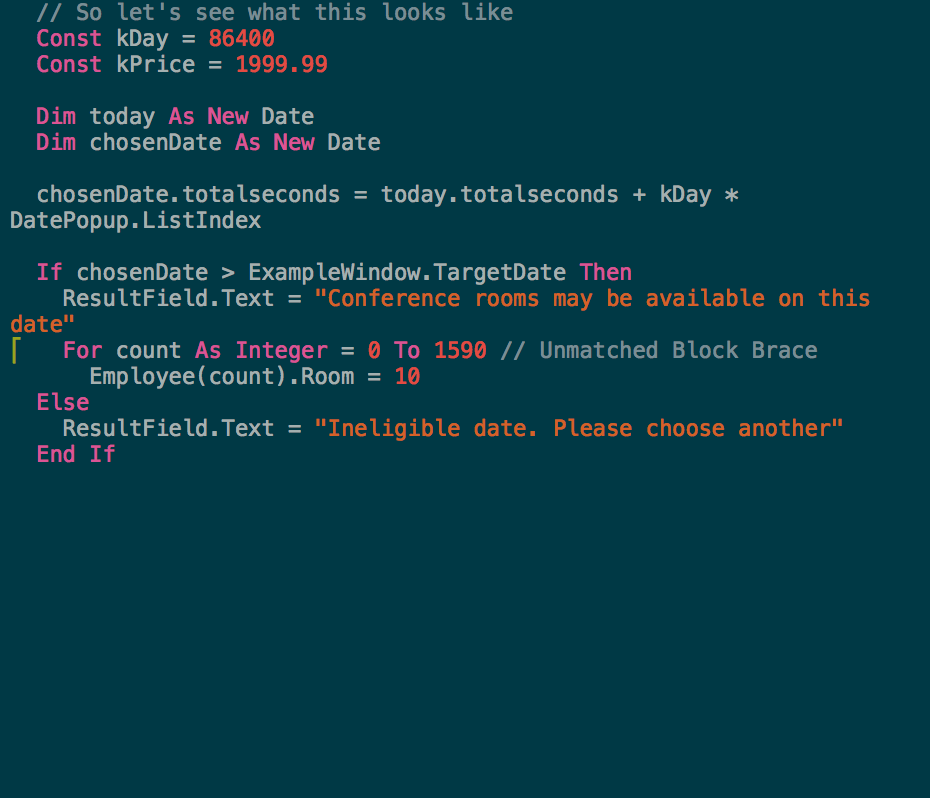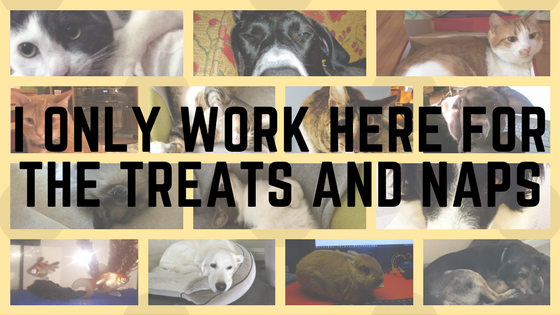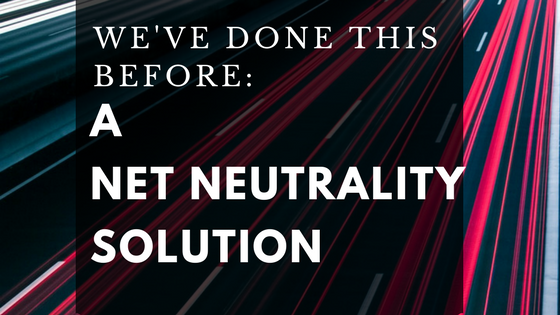Every once in a while we get a question or post like this one that wonders why a loop might turn into an infinite loop or why it doesn’t behave as expected and stop when the loop reaches the limit.
Comments closedXojo Programming Blog Posts
As developers, we often like to have things set up and configured in our own way and our favorite IDE itself, Xojo, is certainly no exception. Xojo allows you to customize it in lots of way but today I want to talk about theming the IDE, or specifically the code editor.
Xojo has always had the ability to customize colors of tokens in the code editor. For example, you can open up Xojo’s Preferences and change the colors of keywords, strings, comments and much more, as well as the font and font size. Other than making things look pretty, there are practical reasons for doing all of this. You may find certain themes are easier on your eyes, especially as you age. Or you may want to have one color scheme for daytime, such as a light background with bright colors for the tokens, and a different color scheme for late night coding, such as a dark grey background with more subdued token colors.
Comments closedLast week the 2018 Xojo Developer Conference sold out! We are very excited about the enthusiasm for this event, and for it being held in Denver. We received the most early registrations we have ever had for XDC, the final list includes attendees traveling from 12 countries. Registration for this year is higher than that of 2015 and 2016, and there is already a growing waiting list! You can be added to the waiting list here.
Even if you aren’t able to join us in Denver for XDC this year, there are still some ways you can stay in touch with attendees, hear major Xojo announcements and leverage the content from the conference.

Comments closed
As the old joke goes, “There are 10 types of people, those that understand how binary numbers work and those that don’t.” Let’s get you into the “understand” group.
Comments closedA wonderful perk of Xojo’s virtual office is getting to spend the day with our favorite people, and by people I mean pets.
Having a pet in your office provides a friendly, positive diversion, which is excellent for employee morale, pets can also increase productivity and their presence in the workplace has been proven to reduce stress. Pets help us working-from-home workaholics step away and take a sanity break. So take a minute and have some eyebleach on us. Meet the Xojo office pets!
Comments closedA recent thread on the forums discussed why a particular bit of code would not compile he felt the error message seemed less than helpful: “CRghtColr As Color = Color.RGBA(000,061,255,208)”.
Comments closedI’ve heard it several times: how can I export to PDF from Xojo? Sure, there are lots of answers pointing to a bunch of resources, including excellent plug-ins from third parties. But can you accomplish the same thing using an already available API? Yes, there is a remote API for that! The requirement is that your Xojo app will need to have access to Internet … and, of course, you’ll need to do just a bit of coding.
Comments closedAn optimizer “improves” the IR, but that can mean a lot of different things. Improve could mean “run faster” or “use less memory”. Or perhaps you want to optimize for memory access time because CPUs are so fast it is sometimes more efficient to repeatedly calculate something rather than calculate it once, store it and access it later.
This is the sixth post in our Compiler series. Previous posts:
- LLVM Everywhere
- Compilers 101 – Overview and Lexer
- Compilers 102 – Parser
- Compilers 103 – Semantic Analyzer
- Compilers 104 – IR Generation
- Compilers 105 – Back End Overview
As I’ve written before, the FCC’s claim that rolling back Net Neutrality will result in more competition (which presumably will be better for consumers) is flawed because of the cost of the last mile. What that means, in summary, is that over the last 30 years various cable and telecom companies have bared the cost of laying all the cable/wire necessary to bring internet service to most of the homes and businesses in US cities. They did this because city governments were more than willing to trade the enormous cost of creating a citywide network for the provider having (in most cases) an effective monopoly on providing internet access.
This isn’t the first time a service or utility has evolved in this manner in the United States. The railroads, the telegraph and later telephone service were all networks that were developed in much the same way.
Comments closed



